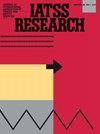Assessing public a priori acceptance of fully automated vehicles using an extended technology acceptance model and importance-performance analysis
IF 3.3
Q3 TRANSPORTATION
引用次数: 0
Abstract
Fully automated vehicles (FAVs) are anticipated to enter the passenger vehicle market soon. Given the uncertainties surrounding user adoption of this emerging technology, research is needed to understand their user acceptance. While most studies on the acceptance of automated vehicles have been conducted in upper-middle-income or high-income developed countries, similar research in middle-income countries is limited. This study aims to evaluate a priori acceptance of FAVs in a middle-income developing country by extending the Technology Acceptance Model (TAM). Trust, subjective norms, perceived safety risk and four decision-making styles (Thoroughness, Hesitancy, Social resistance, and Perfectionism) were included in the extended model. This study aims to evaluate a priori acceptance of FAVs in a middle-income developing country by extending the Technology Acceptance Model (TAM). Trust, subjective norms, perceived safety risk and four decision-making styles (Thoroughness, Hesitancy, Social resistance, and Perfectionism) were included in the extended model. Structural Equation Modeling was applied to confirm model validation by using data from 1026 drivers from different cities in Iran. A multi-group analysis was conducted to assess whether the relationships between model constructs vary across different demographic and background groups. Additionally, an importance-performance analysis was performed to gain a deeper understanding of the factors influencing behavioral intention. The findings of the model highlighted that beyond the original TAM scales, subjective norms were the strongest predictor in explaining drivers' intentions to use FAVs. Initial trust also moderately contributed to explaining user acceptance of FAVs. The results also revealed that among decision-making styles, thoroughness positively affected behavioral intention through trust, while social resistance had an indirect negative effect on intention. The findings showed that effect of the perceived safety risk on behavioral intention through the initial trust was confirmed; however, importance-performance map analysis revealed that a significant improvement was observed in the safety area that could still be obtained. It is suggested that policymakers start promoting the usefulness and ease of use of FAVs through advertisements, social media, public campaigns and autonomous vehicle test ride events to facilitate the adoption of FAVs when available in countries with similar sociocultural contexts.
利用扩展技术接受度模型和重要性-绩效分析评估公众对全自动驾驶汽车的先验接受度
全自动驾驶汽车(FAV)预计将很快进入乘用车市场。鉴于用户采用这一新兴技术的不确定性,需要开展研究以了解用户对其的接受程度。大多数关于自动驾驶汽车接受度的研究都是在中上收入或高收入发达国家进行的,而在中等收入国家进行的类似研究却很有限。本研究旨在通过扩展技术接受模型(TAM),评估中等收入发展中国家对自动驾驶汽车的先验接受度。信任、主观规范、感知安全风险和四种决策风格(彻底性、犹豫不决、社会抵制和完美主义)被纳入扩展模型。本研究旨在通过对技术接受模型(TAM)进行扩展,评估中等收入发展中国家对固定电话和自动交换机的先验接受程度。信任、主观规范、感知安全风险和四种决策风格(彻底性、犹豫不决、社会抵制和完美主义)被纳入扩展模型。利用来自伊朗不同城市的 1026 名驾驶员的数据,采用结构方程模型对模型进行了验证。为了评估模型结构之间的关系在不同人口和背景群体中是否存在差异,我们进行了多群体分析。此外,还进行了重要性表现分析,以深入了解影响行为意向的因素。该模型的研究结果表明,除了原有的 TAM 量表外,主观规范是解释司机使用 FAV 意图的最强预测因素。初始信任也在一定程度上解释了用户对 FAV 的接受程度。结果还显示,在决策风格中,彻底性通过信任对行为意向产生积极影响,而社会阻力则对意向产生间接的负面影响。研究结果表明,感知到的安全风险通过最初的信任对行为意向的影响得到了证实;然而,重要性-绩效图分析表明,在安全领域仍然可以观察到显著的改善。建议政策制定者开始通过广告、社交媒体、公共活动和自动驾驶汽车试乘活动来宣传自动驾驶汽车的实用性和易用性,以促进自动驾驶汽车在具有类似社会文化背景的国家得到采用。
本文章由计算机程序翻译,如有差异,请以英文原文为准。
求助全文
约1分钟内获得全文
求助全文
来源期刊

IATSS Research
TRANSPORTATION-
CiteScore
6.40
自引率
6.20%
发文量
44
审稿时长
42 weeks
期刊介绍:
First published in 1977 as an international journal sponsored by the International Association of Traffic and Safety Sciences, IATSS Research has contributed to the dissemination of interdisciplinary wisdom on ideal mobility, particularly in Asia. IATSS Research is an international refereed journal providing a platform for the exchange of scientific findings on transportation and safety across a wide range of academic fields, with particular emphasis on the links between scientific findings and practice in society and cultural contexts. IATSS Research welcomes submission of original research articles and reviews that satisfy the following conditions: 1.Relevant to transportation and safety, and the multiple impacts of transportation systems on security, human health, and the environment. 2.Contains important policy and practical implications based on scientific evidence in the applicable academic field. In addition to welcoming general submissions, IATSS Research occasionally plans and publishes special feature sections and special issues composed of invited articles addressing specific topics.
 求助内容:
求助内容: 应助结果提醒方式:
应助结果提醒方式:


